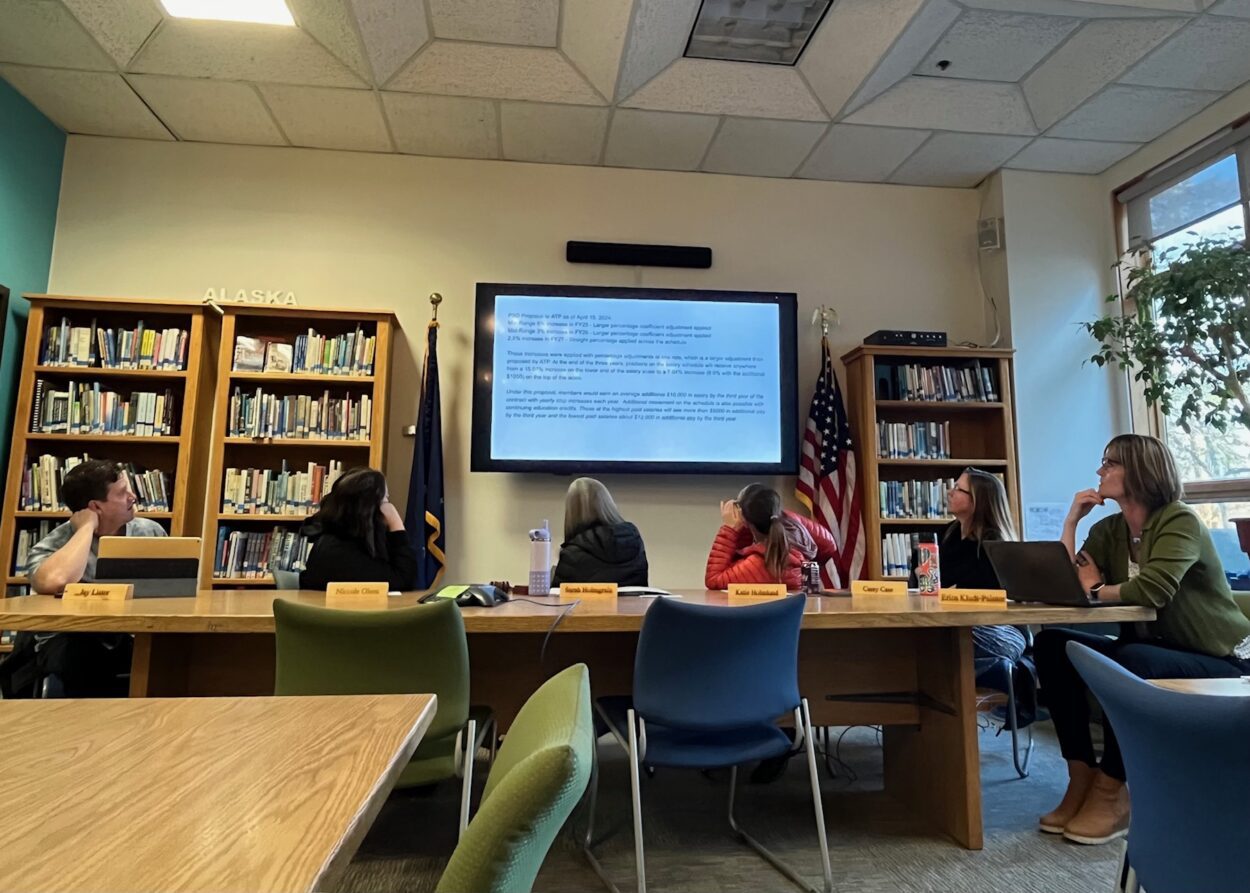
The Petersburg School District and the teachers union have reached a tentative agreement after five months of negotiations. The district made an offer on May 7 that includes the union’s last salary proposal. Union President Alice Cumps updated the Petersburg School Board at its meeting on May 14.
“This offer would make Petersburg’s contract more in line with other schools and Southeast and the rest of the state,” she said.
The agreement depends on education funding from both the state and the borough, which won’t be finalized until next week.
Reps on both sides have said negotiations this year are more complicated than usual because the school district has so little money to work with. That’s because of flat state education funding. The state’s base student allocation, which is essentially the funding for each student in a district, hasn’t increased since 2017.
The proposed contract has salaries for teachers that were submitted by the union in February, but rejected by the district. School Board President Sarah Holmgrain said Gov. Mike Dunleavy’s assurance that he would not veto this year’s one-time education funding changed the math for the district.
“And then if we’re able to get the funding from the borough, we could then foresee that we could afford their last salary request,” she said.
She says those higher teacher salaries are also made possible because a handful of teachers are retiring or leaving the district this year.
The contracts last for three years, and teachers’ salaries make up about 40% of the district’s budget. Holmgrain says the district will likely have to keep downsizing in order to have a balanced budget by the third year of the contract.
“It will eventually happen, probably, where we will have to say ‘I’m sorry, we can’t offer you a contract next year, because we can’t afford to do it.’ Unless something happens at the state level, but it’d have to be pretty drastic,” she said.
The two groups have been negotiating a new contract for teachers since January. Union reps said one of the main sticking points is that teachers’ salaries haven’t kept up with the increased cost of living. Teachers have gotten a 3% salary increase over the last few years – at 1% per year – but inflation has increased nearly 15% in that time. They say they need a salary increase to match that, otherwise, their salaries are essentially decreasing.
In the current proposal, starting teacher salaries would increase nearly 15% over three years to about $54,000. The highest teacher salaries in the district would go up 10% over three years, to more than $98,000.
Gov. Dunleavy has until June 28 to sign the state operating budget that contains $175 million in one-time funding for public schools.
The district’s proposal is also contingent on $3.4 million in funding from the Borough – the maximum amount the borough can legally contribute.
At last Monday’s assembly meeting, more than a dozen people urged the Borough to fund the district to the cap. Middle school teacher Beau Ward told assembly members that failure to do that would nullify the agreement between the teachers union and the district.
“If this happens, the union will file for arbitration, which is the next step,” he said. “Arbitration is not binding. So if either side rejects the result, then an imposed contract by the district and/or job actions by the teachers union are the next step. Obviously, neither side wants this. This is where we’re at.”
The assembly voted unanimously to include the $3.4 million in the budget in its second reading. They will take a final vote on their education contribution on June 3.
If full funding from the borough and state is approved, the teachers union will present the district’s proposal to their members.
An earlier version of this story incorrectly stated that Dunleavy’s deadline to sign the state operating budget is June 6.











